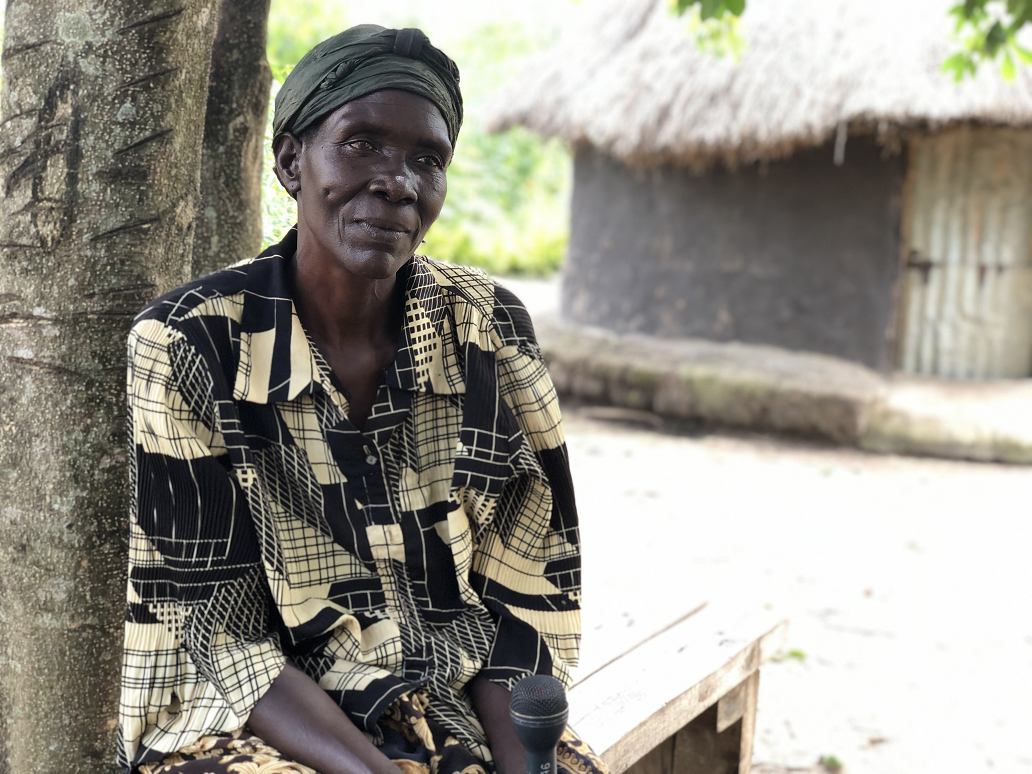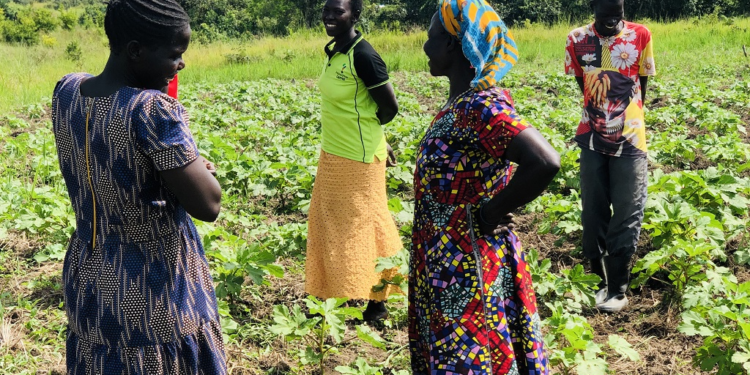Amid the famine and malnutrition bad press, communities in northern Uganda are going back to traditional and communal farming approaches as a solution to the unending food security crisis.
In Unyama, a community 10 kilometers outside the northern city of Gulu, farmers have clustered into groups, where they share skills, land, human capital and seeds to improve crop productivity.
Seventy-year-old Grace Abur, a mother of four, and grandmother says the idea was conceived to recover the time lost during the more than two decade Lord’s Resistance Army insurgency.
“When we returned home, it was necessary for us to recover the time lost. As a farming community, cultivation was our only means of recovery,” Abur narrates, further sharing that the desire to start over pushed returnees to form farming groups to exchange ideas on productivity.

Farming in northern Uganda is largely hindered by climatic factors which include prolonged drought. In Unyama, community members decided to remobilize and focus on traditional seeds that can withstand the weather.
Together, the community formed a seed philanthropy model where at every planting season, members can borrow seeds and return twice the amount borrowed into the community bank at harvest.
With granaries constructed from local materials farmers are able to communally store up to 200 kilograms of seeds of different crop varieties including serials and vegetables.
“Our seeds are organic and can withstand the changing weather patterns. Before we started, children here were stunted, now you can never hear of such a story because our crops are highly nutritious,” Abur explains, adding that even in harsh weather, local seeds have the ability to yield better than modified seeds supplied by the government in the post war agricultural production efforts.
Across the bustling Gulu city is Omoro district, where acute malnutrition levels stand at 5.9% of children under 10. A women’s group in the community of Atede in Labora sub county is replicating the seed model for purposely nutrition and extra income.
The past four farming seasons have yielded great results, which they have used to convince clan chiefs to allow them to utilize the land to grow more food.
“We borrow seeds from the bank, plant and send them back. We have managed to produce high quality cereal to feed our children and sell the excess for extra income. For us, it is beyond farming to organic agriculture for sustainable incomes,” women leader says.
Almost 99% of households in rural northern Uganda are engaged in subsistence farming. As such, land access is seen as a significant determinant of food security.
However, the communal land ownership system has made it difficult for women to access the land yet they are the breadwinners that farm the land, according to Gulu Women Empowerment Development and Globalization (GWED-G) to empower communities in land utilization and land rights.
“The land tenure system of Northern Uganda is a hindrance to farming progress since here, a woman can’t own land practically,” Explains Lucy Achan who heads the food security program at GWED-G.
The organization has helped communities to replicate the seed philanthropy model and also engaged community leaders to allow women access to land because according to Achan they are breadwinners on whose effort families are fed”.
The community groups in Unyama and Omoro have been part of the beneficiaries of such programs.
“Had it not been these models, life would have been much harder after the passing of my husband,” says Abur emphasizing that the patriarchal land ownership system would deny her land rights to make a living and feed her family.
According to the Gulu district Chairperson Christopha Opio Atekere, the changing weather patterns have greatly affected food production across the northern region. And it has been the reason for the malnutrition challenges and the food crisis.
“Our people are really vulnerable especially in the months of May, June and July. Us as leaders have a duty to ensure that we find solutions to this challenge,” he says while emphasizing the relevance of creative responses such as the seed banking model.
In its post war recovery efforts, the government initiated the Agricultural Livelihoods Recovery Project, a comprehensive effort aimed at reviving the agricultural sector and offering a lifeline to farmers in Gulu District.
According to Atekere, the planting of fast growing Genetically Modified Seeds, is also being setback by the unpredictable weather patterns.
“The previous farming season didn’t do well because of drought. However, the rain is destroying the crops again,” he shared.
In the face of these challenges, the model has emerged as a powerful tool in solving economic challenges. Members can access loans and pay them back at a minimal interest rate, creating a sustainable economic ecosystem within the farming communities.
However, rudimentary farming practice is one other major obstacle farmers have to rise against to fight the unending food crisis and improve incomes.
Abur believes that this is also another area they need to merge efforts as a community to win against.
“The seeds banks also has a Village Saving Model which has also empowered us economically, as you see I have already started the process of constructing my new house,” she said alluding to the fact that farming groups used the seed bank model to a community saving model and hope to escalate it to something bigger.
Kevin Kasooma contributed to this story.



